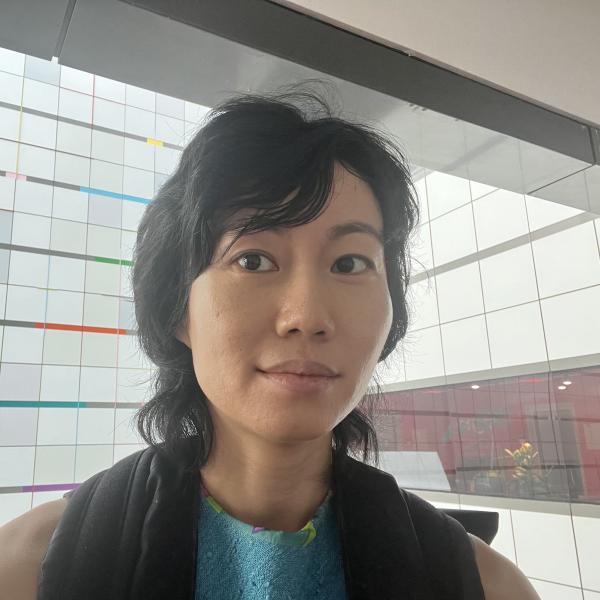
Biography
Cassandra Guan works on the history of animation with a special focus on the co-evolution of modernist aesthetics, new media technologies, and the life sciences. Her research underscores the material entanglements of political modernist cinema and the transnational permutations of a “bioanalytic” paradigm. She is currently finishing a book project entitled Maladaptive Media: The Plasticity of Life in the Era of Its Technical Reproducibility. It argues that radical transformation of animation aesthetics during the interwar period—taking place across film, radio, and print amidst the global proliferation of mass communication networks—revealed a crisis in the relations between the living being and its environment. The book offers a new approach to questions of animation and spectatorship, by re-evaluating the pitched intellectual battles in the conceptualization of life and postulating a corresponding break in the history of audio-visual form.
Guan received a PhD in modern culture and media from Brown University. Before joining CMS, she was the recipient of a Mellon Postdoctoral Fellowship at the MIT Center for Art, Science, and Technology (CAST), and she held a faculty position at the Whitney Museum’s Independent Study Program. A filmmaker as well as a scholar, Guan has been involved with several experimental and documentary film productions. Her latest film project Tender Comrades, an exploration of the ambiguities of gender and female friendship in left-wing cinemas of mainland China, received an Electronic Media and Film Finishing Funds Award from the New York State Council on the Arts. Pursuing her interest in global animation histories, Guan is developing a second book project that explores the dialectic of mass mobilization and mass automation in Chinese state-sponsored media campaigns from the 1950s through the present.
Recent Publications
- “Beijing Olympia: First Time as Mass Spectacle, Second Time as Digital Ornament.” In Oxford Handbook of Chinese Digital Media, edited by Yomi Braester, Jinying Li, and Carlos Rojas. Oxford, UK: Oxford University Press. In production.
- “What Is the Work of Animation? The Plasticity of Time in the Fourth-Dimensional Image.” Film-Philosophy, vol. 28, no. 3 (2024): 477-503.
- “Rewriting the Ethnos Through the Everyday: Ulrike Ottinger’s China. Die Künste – der Alltag.” In Ulrike Ottinger: Film, Art and the Ethnographic Imagination, edited by Angela McRobbie, 101–119. Chicago: Intellect, The University of Chicago Press, 2024.
- “What Happens to the Index in Animation? The Case of The Taking of Tiger Mountain.” Association for Chinese Animation Studies (ACAS), https://acas.world/2024/05/05/what-happens-to-the-index-in-animation-the-case-of-the-taking-of-tiger-mountain/
- “Critique of Flowers: The Exigency of Life in the Era of Its Technical Reproducibility.” October 175 (2021): 20-63.
- “Cinema’s Natural Aesthetics: Environments and Perspectives in Contemporary Film Theory” (with Adam O’Brien). Screen, vol. 61, no. 2 (2020): 272-279.
Teaching
Autumn Quarter 2024
CMST 14400 Film and the Moving Image
CMST 25603 What Is Animation?
Spring Quarter 2024
CMST 24608/34608 Beijing Through the Lens
CMST 29202 Advanced Seminar: Materialisms and Methods
